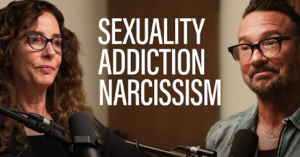Anorgasmia is the inability to experience sexual orgasm. Orgasmic disorder is a persistent delay in or absence of an orgasm during sexual activity. This sexual dysfunction disrupts the third stage of the sexual response cycle, the orgasm phase.
To assess for anorgasmia, a qualified sex therapist needs to consider:
- The person’s age
- Sexual experience
- Intensity of sex
- Duration and adequacy of stimulation (4th ed., text rev.; DSM–IV–TR; American Psychiatric Association, 2000).
In order for anorgasmia to be a diagnosable clinical disorder, the individual must experience distress or interpersonal difficulty as a result. The inability to experience sexual orgasm must not be caused by physical side effects of a substance or a general medical condition.
There are multiple types of anorgasmia:
- Primary – one has never experienced orgasm
- Secondary – loss of ability to have an orgasm or those who can achieve orgasm through masturbation but not through partner stimulation
There are two subtypes of anorgasmia:
- Generalized – not limited to certain types of stimulation, situations, or partners
- Situational – dysfunction appears to be limited to certain instance
Anorgasmia is more common in females. For men, anorgasmia is often related to delayed ejaculation.
Anorgasmia has physical causes including:
- Hormone imbalance
- Hysterectomy
- Spinal cord injury
- Cardiovascular disorders
The psychological origins for anorgasmia may include:
- Performance anxiety
- Poor body image
- Interpersonal problems (McCabe, 2009)
A systemic approach to therapy with a qualified sex therapist may be the most appropriate framework to assess anorgasmia. It is important to look at the totality of the individuals’ life context to properly diagnose anorgasmia (McCabe, 2009).
Treatment for anorgasmia may include:
- Hormone therapy
- Medication to improve blood flow
- Sex therapy
References:
AMERICAN PSYCHIATRIC ASSOCIATION. (2000) Diagnostic and statistical manual of mental disorders (4th ed., text rev.). Washington, DC: Author.
McCabe, M. P. (2009). Anorgasmia in women. Journal Of Family Psychotherapy, 20(2-3), 177-197. doi:10.1080/08975350902970055



